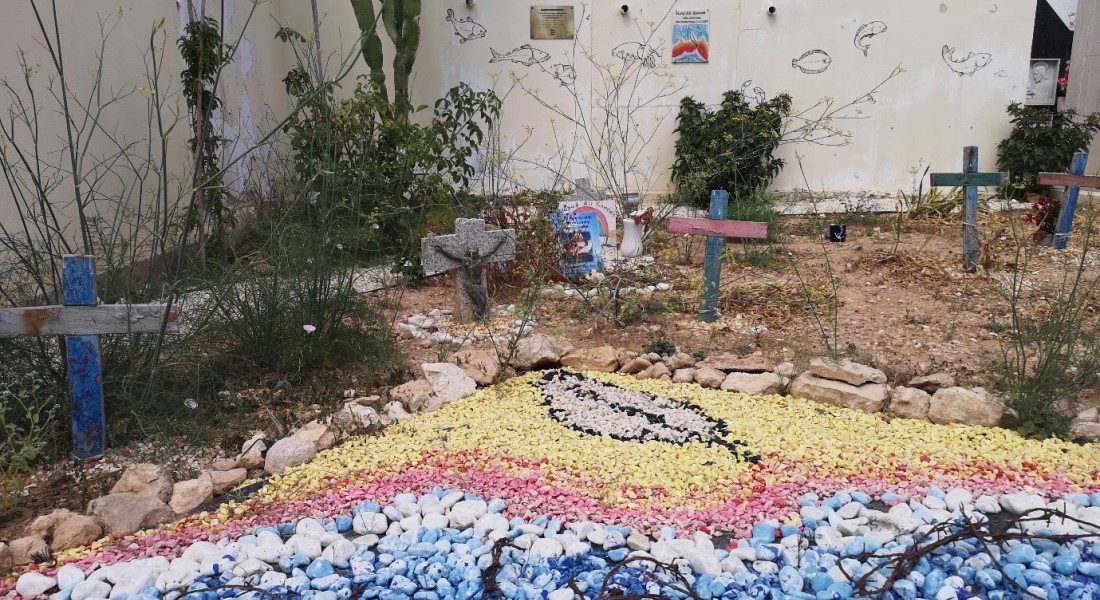Project to investigate the social and political impact of migrant deaths
Every year, thousands of migrants from Africa die on their way to Europe. A new anthropological project funded by the European Research Council will examine the impact of these deaths on the bereaved, as well as the work of authorities in identifying deceased migrants.

In 2023 alone, at least 3,129 African migrants died or disappeared trying to reach Europe by attempting to cross the Mediterranean, according to the UN International Organisation for Migration. About half as many perished in the Sahara or on their way to the Canary Islands.
And these figures are likely to be just the tip of the iceberg.
Against this backdrop, a new research project in the Department of Anthropology, 'The Social Life of Dead Bodies', will look behind these figures by focusing on two groups that are either directly affected or involved: the families of migrants, and the authorities and organisations that try to name dead migrants or address the political challenges of migration.
With a grant of €1.5 million from the European Research Council (ERC), it will not only increase knowledge of the social consequences of migrant deaths, but also map their political impact in Spain and Greece.
"The number of people dying on the way to Europe is increasing, and we know very little about how this is affecting communities in both Europe and Africa. Until now, we have mostly focused on those who survive migration, whether they are stuck in refugee camps on their way to safety or make it all the way to Europe. In contrast, we know very little about the consequences of the many deaths," says Associate Professor and project leader Anja Simonsen.
"So the project is about understanding the social imprint that death leaves - the social life that happens when migrants die at sea or in the desert. For example, how do the bereaved search for their loved ones, and how do forensic scientists try to identify the migrants who are found?"
The project returns to the country of origin
Identifying the consequences of unregulated migration is a major challenge. The project therefore approaches the 'social anatomy' of deaths from three angles:
- The researchers will use fieldwork and interviews to explore how families try in different ways to find their missing loved ones and cope with uncertainty. This will be done primarily in two countries: Somaliland and Morocco. Somaliland (and Somalia) is one of the countries from which many migrants flee, while Morocco is both a transit and sending country.
- At the same time, the project is following forensic experts in Spain and Greece who are working to identify deceased migrants, usually without identity papers, and to determine the causes of death and any signs of what they may have been through before - such as physical abuse.
- Finally, through fieldwork conducted among politicians in the two countries, the project will explore how politicians implement national and European policies in the area and how the high number of deaths affects the political decision-making process.
The three field studies will be complemented by two workshops where the project will bring together survivors, bereaved families, forensic experts, organisations and authorities in an unconventional way to gain new perspectives on the social traces left by the deaths.
But the rest of the project also aims to link the sub-projects together so that researchers can build a more complete picture of how authorities and survivors try to identify deceased migrants in different ways - and whether they complement or work against each other.
Focusing on a politically sensitive area
Anja Simonsen hopes that the project will highlight the human and social consequences of the deaths on the migration routes. But it also aims to highlight some of the many societal challenges posed by the politically sensitive and dilemma-ridden migration across the Mediterranean.
"How do we deal with the bodies, for example? That is also a political question. The new EU migration pact also puts more focus on the sending countries, but what is the socio-economic and psychological impact of the deaths in Somali societies? And what political dynamics and practices are being created in Europe and implemented in Greece or Spain?”
"So the deaths are not only a problem for the individual, but also a problem for society as a whole. We hope that this project will contribute to the political discussion," says Anja Simonsen.
Read the press release from the European Research Counsil (ERC)
Contact
Anja Simonsen (PI)
Associate Professor, Department of Anthropology
Email: anja.simonsen@anthro.ku.dk
Telephone: +45 35 32 34 92
Søren Bang
Journalist, Faculty of Social Sciences
Email: sba@samf.ku.dk
Mobile: +45 29 21 09 73
